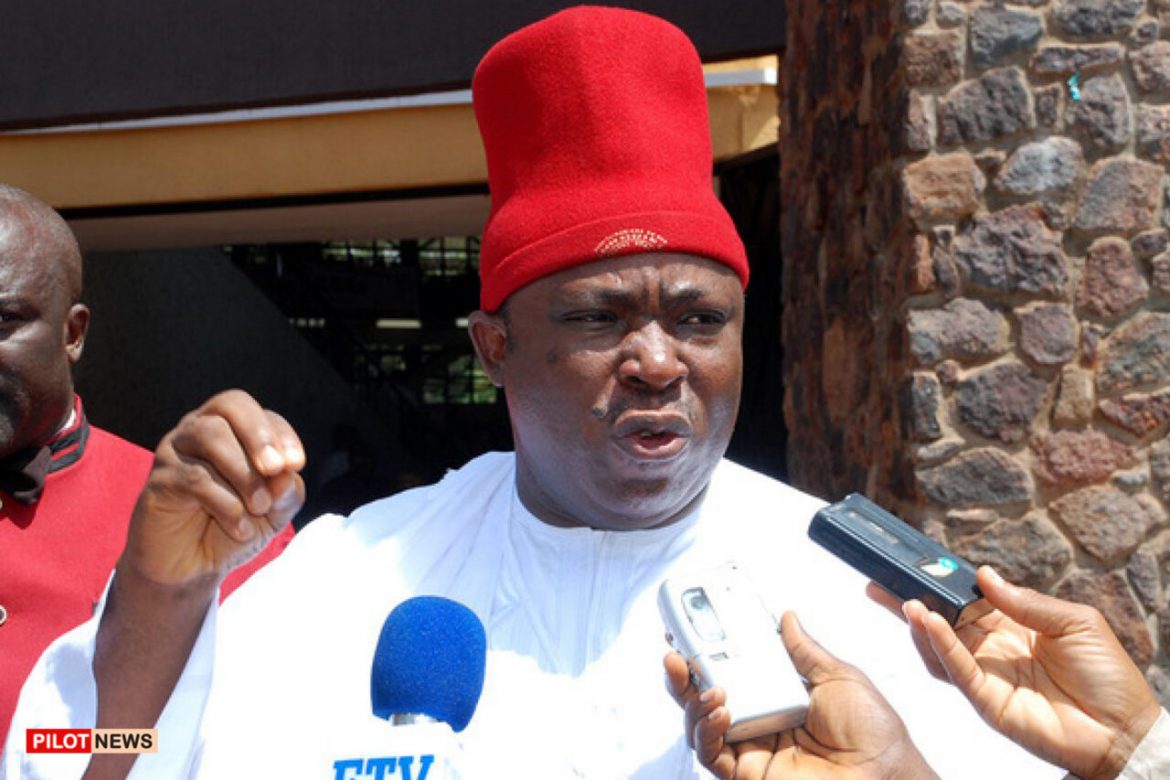757
By Tracy Moses
The Chairman of the Senate Committee on Population, Victor Umeh has called on the Federal Government to take urgent steps towards organizing a National Population and Housing Census, warning that Nigeria’s planning and development efforts will remain hindered in the absence of reliable population data.
Umeh made the call during the official unveiling of the 2025 edition of the State of the World Population Report in Abuja on Tuesday.
He stressed that conducting a comprehensive national census is critical, as it would provide accurate figures on Nigeria’s population size, unemployment statistics, and demographic distribution.
Representing Anambra Central Senatorial District, Umeh noted that meaningful planning and sustainable development can only be achieved when the government is equipped with precise population data.
He said, “As we speak, no one knows the exact number of people living in Nigeria. We rely solely on estimates. Some say we are 200 million, others put it at 220 million, and some even go as far as 230 million.
“These are merely assumptions. That’s why conducting a credible national census is non-negotiable.”
The lawmaker assured that the National Assembly remains fully committed to supporting efforts toward conducting the long-overdue census.
Umeh also urged fellow lawmakers to resist any temptation to introduce legislation limiting the number of children Nigerian couples can have.
Addressing issues raised in the report, he stated that it is practically difficult to legislate birth control. Instead, he advocated for strengthened sexual education programs targeted at adolescent girls as a more effective approach to managing population growth.
Also speaking at the event, Chairman of the House Committee on National Population and Identity, Hon. Okunjimi Odimayo, revealed that the Constitution Review Committee is considering enshrining a fixed interval for conducting population censuses, as recommended by the United Nations Population Fund (UNFPA).
In his remarks, Chairman of the National Population Commission (NPC), Nasir Isah Kwarra, applauded the UNFPA for its consistent leadership in producing the annual report and for championing global and national discussions on population and development.
Kwarra noted that the 2025 report challenges Nigeria to reflect deeply on the structural issues behind fertility trends, rather than merely focusing on whether birth rates are rising or falling.
He said, “This report shows us that the real challenge lies in the inequalities and unmet needs that influence reproductive choices across the world.”
“For Nigeria, this is not just a theoretical concern, it’s a pressing and highly personal issue. Every day, countless men and women across the country struggle with obstacles in making informed decisions about when and how many children to have,” he stated.
He identified barriers such as poverty, limited access to quality healthcare, gender inequality, and lack of reliable data as key factors undermining both individual empowerment and national development.
Kwarra appealed to all stakeholders, including government bodies, development agencies, civil society, religious institutions, private sector actors, and the media, to embrace the findings of the report and work collectively to protect the reproductive health and rights of all Nigerians.
This year’s report is themed “The Real Fertility Crisis: The Pursuit of Reproductive Health Agency in a Changing World”, and it delves into current global conversations on fertility, reproductive autonomy, and the socio-economic forces that shape them.



